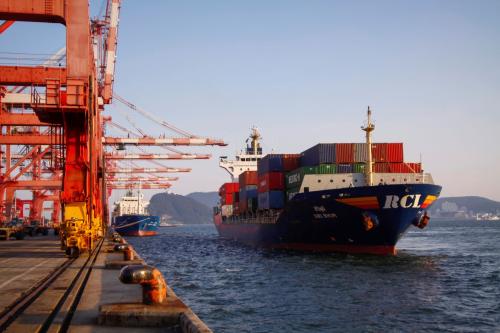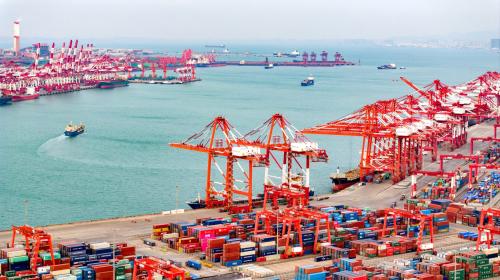2024
President Trump promised a reset in U.S. trade policy, making the reduction of bilateral trade deficits a core priority. His opening act on trade—withdrawal from the Trans-Pacific Partnership (TPP)—sent shockwaves through the Asia-Pacific region. But other campaign pledges, such as a 45 percent blanket tariff on Chinese imports, have not materialized. Instead, the administration has revived little-used U.S. trade laws to tame Chinese unfair trading practices: a Section 232 investigation on steel and aluminum that could restrict imports with national security considerations and a Section 301 investigation on Chinese intellectual property theft. The Trump administration has been a proponent of the benefits of trade bilateralism. Major initiatives on this front include the launch of high-level economic dialogues with Japan and China, and steps to amend parts of the U.S.-Korea Free Trade Agreement (KORUS FTA). The U.S. government has also expressed a strong desire to launch new bilateral trade negotiations with countries like Japan and Vietnam, although none have been formally launched yet.
On February 28, the Center for East Asia Policy Studies and the U.S.-Japan Research Institute hosted a panel of experts to assess the drivers and outcomes of Trump’s trade policy in Asia over the first year of his administration. They discussed how Japan and the United States can deepen trade and investment ties despite the American withdrawal from the TPP; the chances of a successful renegotiation of the KORUS FTA and its impact on broader U.S.-South Korea relations; and whether the administration’s condemnation of predatory economics in the region and use of unilateral trade measures will effectively deter Chinese mercantilism or trigger trade friction.
Agenda
-
February 28
-
Moderator
 Mireya Solís Director - Center for Asia Policy Studies, Senior Fellow - Foreign Policy, Center for Asia Policy Studies, Philip Knight Chair in Japan Studies @solis_msolis
Mireya Solís Director - Center for Asia Policy Studies, Senior Fellow - Foreign Policy, Center for Asia Policy Studies, Philip Knight Chair in Japan Studies @solis_msolis
-



